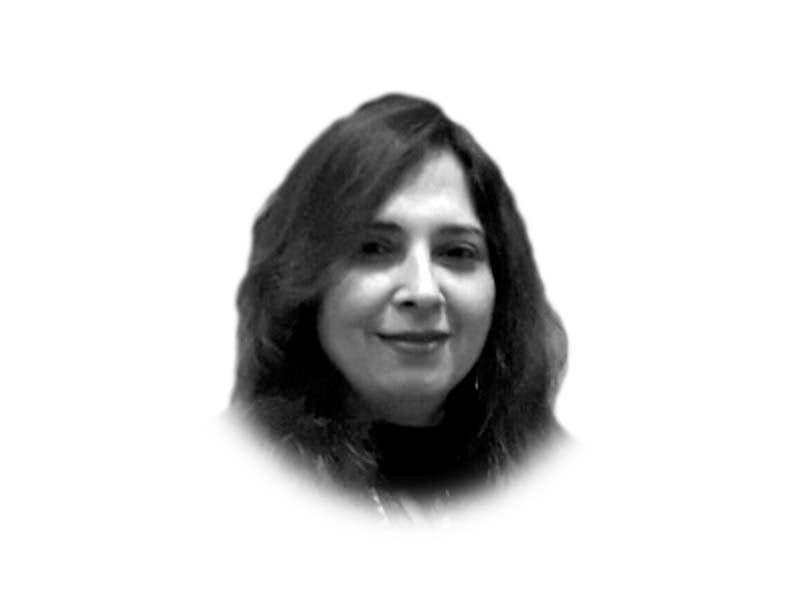
The law of thermodynamics is on test in Pakistan. So it has been on many occasions in the past; however, Pakistan has seldom been as polarised and divided on political lines as we find it today. It may have begun after Imran Khan in 2010 found the floor to pitch his party as the only ship to sail in Pakistan’s choppy, corruption-laden and unhinged political waters. Though his party’s footprints in the parliament were hardly visible — for years, he had been the only elected member representing PTI — IK resisted embracing anyone with a history of corruption. His party members were drawn mainly from the youth of the 1990s fed up with the corrupt practices of the main stakeholders of politics — the establishment, judiciary and lawmakers. Despite conniving, backstabbing and letting each other down, the stakeholders would still find a way to get along. The common perception was that ‘greed for power was strong enough to tear their bond apart’. Khan and his party, the Pakistan Tahreek-e-Insaaf (PTI), conjured the welfare of the people and not power, the centrepiece of any political struggle. Being alone in this camp, Khan and his party developed a rigid attitude towards their opponents, which not only made them narcissists but, over time, also instilled in them the rare feeling of being indispensable. When other politicians were doing well, IK failed in the law of thermodynamics.
According to the law of thermodynamics, energy in a system encounters three situations: one, it cannot win; two, it cannot break even; and three, it cannot quit the game.
Imran may wage as many wars as he could against his so-called corrupt counterparts in other parties or camps, but unless some revolutionary attempt or reverse engineering is made to unravel the system, he will not win. Neither would his opponents. The political landscape, lacking a common denominator between IK and his opponents, will (has) force (ed) the political energy to diffuse and settle where there is less concentration of people’s representatives. This drops constitutional democracy to absolute zero. The politicians are either sent packing in exile, forced to join the new league of power, or worse are imprisoned unless they agree to sustain the new equilibrium of power play.
Therefore, it is upon the politicians to decide how they want to live in the system. Do they want to live as a powerful energy, or are they fine with their power diffused so far as they are part of the game? Are they willing to evaluate and redefine their place in a system from where there is no exit, and where there are no definite winners? Where no single political party can bring the country out of the economic moors, it has to be a collective act. This is the test that, to date, every party has failed, more so the PTI, because of its members’ so-called untainted political past and the mindset that their political values are unmatchable.
The ongoing debate on the army chief’s selection is disturbing and indicates where the energy might slip if the politicians do not stop seeing the political landscape as a contesting ground to increase personal power. Not that this is a new trend. The appointment of the army chief has been one of the major issues that every governing party is supposed to handle with utmost care. The question is: why have we reached this stage? The answer is the division among politicians that emanates from their crooked sense of judgement that does not allow them to see the forest. The metaphorical tree — winning the election, having the prime minister slot — takes all their attention.
Since the system cannot be unravelled and the #haqiqiazadilongmarch will hardly materialise into anything even near #azadi, the only path left for Imran Khan and other political parties is to join forces and build real democracy in the country, with all the three tiers of governance — national, provincial and local — in place. As for overhauling the justice system, there is only one way to it — confessing the wrong each stakeholder has committed, to one another, to the constitution and most of all to the people of Pakistan. This happened when a truth and reconciliation commission was made in South Africa. This commission brought the offenders and the victims face to face, and both relived their horrible past, albeit with the spirit to forgive and move on.
In a corollary to pass the thermodynamic test, the political parties must unite first to close the doors of hybrid democracy or partial martial law. This is only possible when politicians make the welfare of the people and respect for the constitution their common denominator.
This collective sense of nationalism built on forgiveness and rejuvenation of the judicial system is the only route to #HaqiqiAzadi; the rest will only invite bloodshed and decadence.
Published in The Express Tribune, November 17th, 2022.
Like Opinion & Editorial on Facebook, follow @ETOpEd on Twitter to receive all updates on all our daily pieces.













COMMENTS (1)
Comments are moderated and generally will be posted if they are on-topic and not abusive.
For more information, please see our Comments FAQ